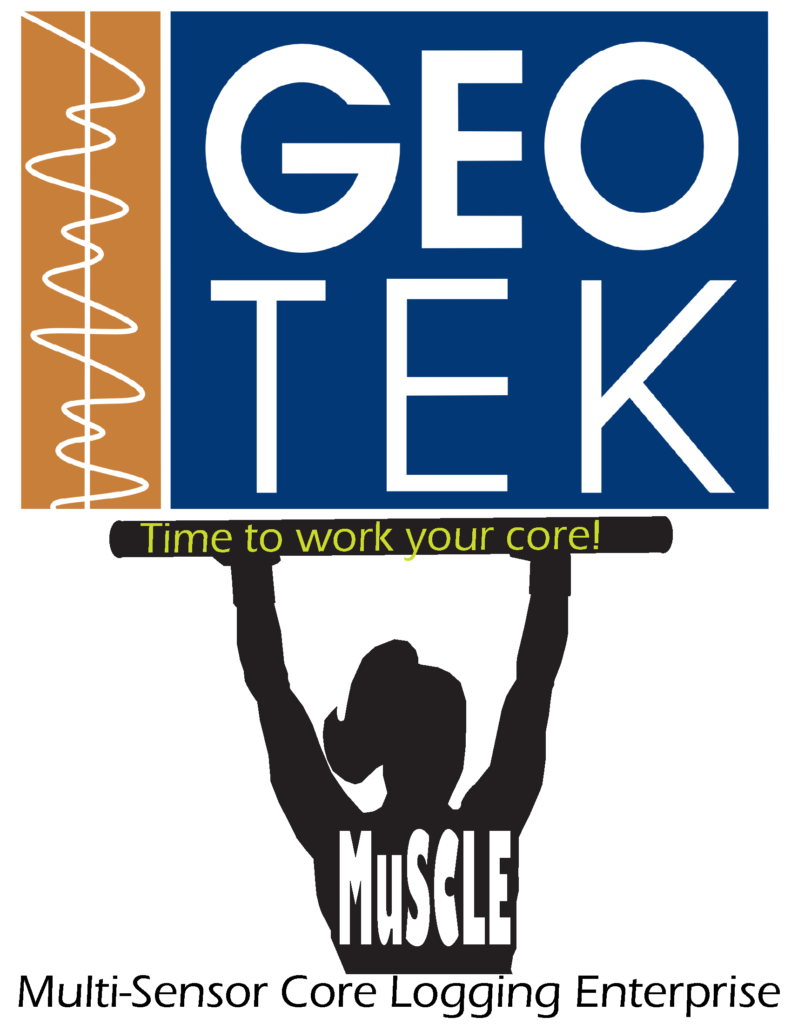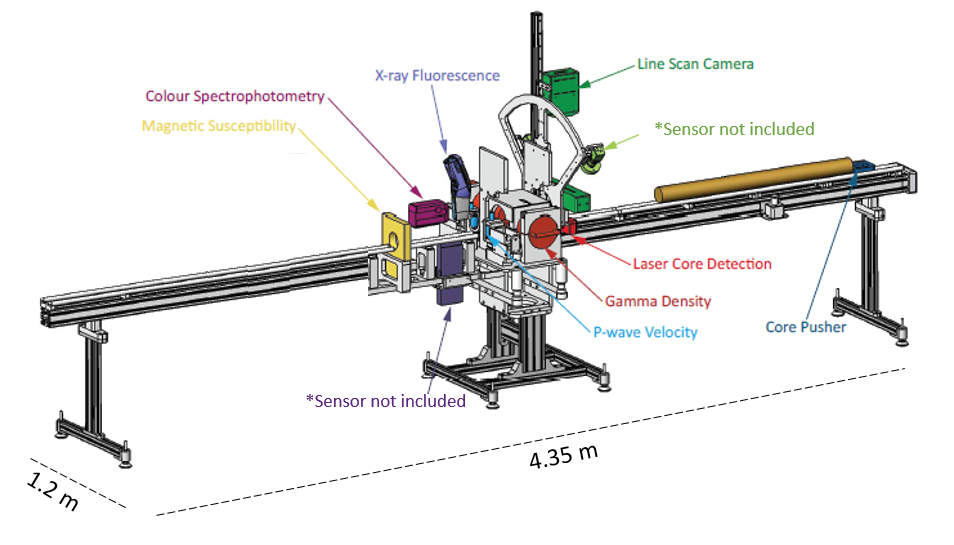
Welcome to the MuSCLE (Multi-Sensor Core Logging Enterprise) Lab. This facility is housed in 012 Heroy Geology Building, and is the nexus for sediment and rock core processing in our department. The lab contains a coldroom for storing cores and samples, a core-splitter and associated tools for processing core materials, and a state-of-the-art Geotek MSCL system.
What is the MSCL?
The GEOTEK Multi-Sensor Core Logger (MSCL-S) allows non-destructive measurements of many different parameters by physically passing a section of a core near a suite of sensors. Core samples are usually inside polycarbonate or PVC tubes (either whole or split sections), which are placed on the horizontal rail and mechanically pushed past the sensors.

List of sensors and what they do:
Acoustic P-Wave Sensor – measures sound wave propagation through the core material for geophysical correlation.
Gamma Density System – uses a Cesium source to generate saturated bulk density measurements.
X-ray Fluorescence (XRF) system – provides elemental data over a wide range of light elements.
Magnetic Susceptibility Sensor – gauges changes in abundance of magnetic minerals in the cores, and is useful for high-resolution stratigraphic correlation.
Color Spectroscopy System – measures reflectance in the very near UV through the visible and into the very near IR range (wavelengths 360-740 nm). These data give quantitative measurements of color changes in the core, which can be related to sediment composition.
Digital Linescan Camera – takes a continuous scan of the of the core to create high resolution core images
Interested in getting core material analyzed on the MSCL?
- Please contact the MuSCLE Lab Technician, Jacqueline Corbet: jrcorbet@syr.edu
- Pricing is based on an hourly rate, and thus specifics on number of core sections, lengths, and scanning resolution will be helpful for an approximation of cost.
- Core processing on the MSCL can include any combination of sensors, depending on your research question. Gamma Density, P-wave velocity, and Loop MS can be performed on whole core segments. XRF, VS, and Point MS are performed on split core sections.
- Samples can be submitted as whole or split core lengths. Core segments can also be split in the MUSCLE Lab.
- Core materials are stored in the MuSCLE Lab coldroom between analyses.
- External users who want to visit the lab and run analyses in-person must complete both general and MSCL-specific radiation safety training at SU as per University and NY State requirements.
- The MuSCLE lab is also available for educational purposes, including demonstrations for classes.